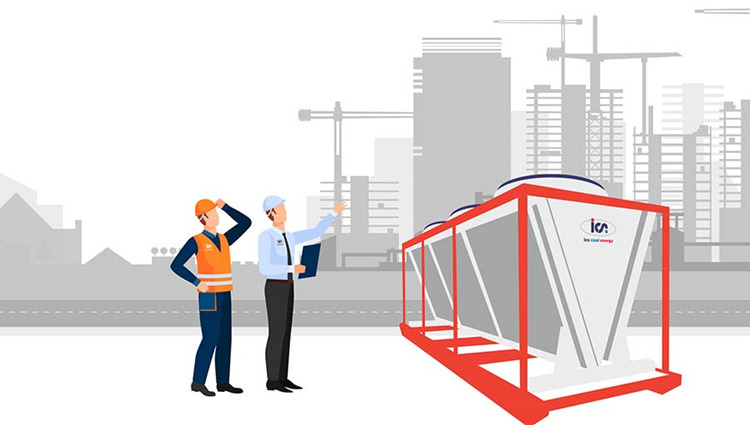
UK: ICS Cool Energy has created a guide to help UK manufacturers protect their vital process cooling systems against seasonal temperature spikes.
While the UK is not renowned for heatwaves, nearly every year a small number of days see spikes in temperature upwards of 30°C, spelling disaster for manufacturers across the country. This year the UK has already experienced its hottest June day since 1976, as well as the longest run of days temperatures of 30ºC or more for 22 years.
These seasonal temperature spikes can cause havoc for manufacturers reliant upon process cooling plant that is poorly maintained, under sized or ageing.
The free-to-download ICS guide urges manufacturers to take control of damaging effects of seasonal temperature spikes, highlights the main risks areas, and offers a number of short and long-term solutions.
“Often the British summertime is laughed off as an underwhelming period of overcast days peaking around 22ºC,” ICS Cool Energy sales director Richard Metcalfe. “Yet, as we have already seen in June 2017 – with five consecutive days witnessing temperatures of 30˚C or over – there are days where the ambient air temperature will exceed the nominal specification for much of the pre-existing cooling equipment in operation across the UK’s manufacturing industry.”
These hot days and subsequent downtime can cost manufacturers hundreds of thousands of pounds in production losses and remedial work.
One of the chief causes of temperature control system failure is overloading of mechanical elements, particularly the compressor. And, while a chiller may have an anticipated working life of eight to ten years, it may drop to six or seven years if mechanical process cooling is required around the clock.
“Flaws, which in 95% of operating conditions go unnoticed, come to the fore when an industrial cooling system is placed under real strain,” says Richard Metcalfe. “Equipment with a nominal specification in the mid-to-late twenties will start to struggle, and mechanical functions which are six, seven, or more years of age will again find it difficult to generate the level of mechanical cooling required to prevent overheating.
“Crucially, these problems can – for the most part – be avoided by simply planning ahead. Not everyone will need to make wholesale changes or purchase new equipment, but acknowledging the issue exists is the first step.”

























